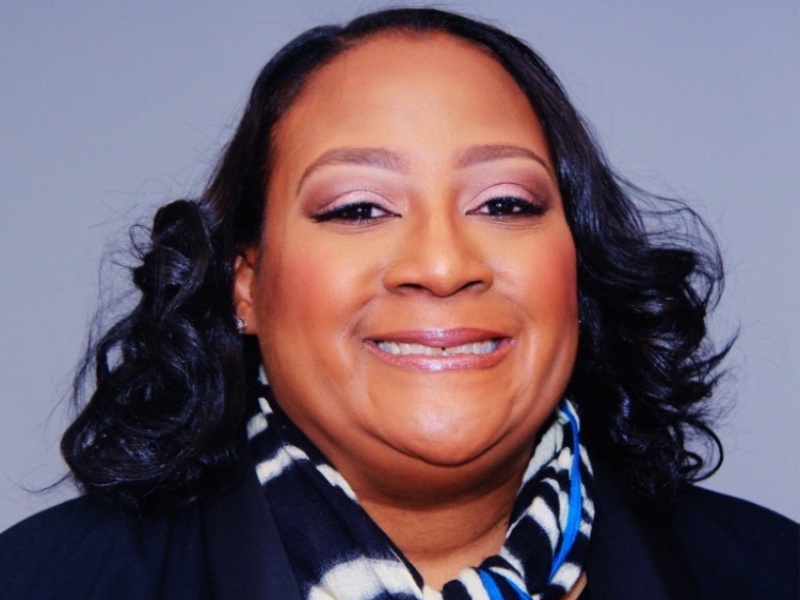Diana Marszalek 06 Jul 2020 // 9:39AM GMT

As a Finn Partners senior partner, Helen Shelton oversees the agency’s diversity & inclusion program, Partners for Diversity: Actions Speak Louder, in keeping with her personal commitment to “uplifting and empowering people of color, because I know what the struggle is.” Throughout her two-decade career in brand communications, Shelton has worked to advance causes such as adult education and housing, arts and culture access, voter registration, disparate unemployment and community health and disease awareness initiatives. She is a member of the national social service organization The Links, a New York Urban League board member and serves as co-chair of the PR Council’s Diversity in Action Committee.
Is this the industry’s moment of reckoning when it comes to diversity & inclusion?
The PR industry is at a crossroads. PR has been benefiting from Black consumers for decades, but the industry now has been set on its ear and is now in a position to finally take seriously what people on the corporate and client side have been saying (that they need more diverse communications teams). Agencies are really being called to the carpet, and they have to wake up and stop using the excuse that they can’t find qualified minority candidates. They are there. We have to go to where these people are, to HBCUs, to organizations like the National Black Public Relations Society.
This is a moment that is a long time in the making. These circumstances are not new. Before people were talking about D&I, who I am, a black woman, is undeniable. But these glaring, lurid examples of endemic racism and violence toward black people and others have made everyone stop, look and listen. This is a humanitarian crisis that we are in the middle of as people. So, while we are grieving this moment we are also mobilizing. I find that very encouraging.
Why did it take events of such magnitude to push the industry to action?
I think previously there was a lot of conversation and the way the industry got over it was to put a few people out there to say the right things. Nobody, until we saw this play out, asked the hard questions. It’s like a spotlight has been put on this issue. It made people see that we can’t skirt around it anymore. It’s not about us just talking about it, making a statement. It’s about looking at where we are, what we have done and looking at what we can do moving forward.
Has the industry not taken D&I seriously?
I don’t think the issue was not intentionally taken seriously. This is a business and I don’t think people saw the value of this kind of work. What people weren’t realizing, that multicultural consumers are really the ones that drive the trends, tastes and style.
In some cases, people at agencies were able to get (past issues around D&I) by just putting forward the talk and the language and the right thing to say. I think the corporate and client community far preceded the agency side of the business by making (diversity) demands. But when (being diverse) it became the business imperative, in addition to the more moral imperative, that’s when many in the industry started to really take notice. And now morality is in pure color; the moral imperative for us to do something has been laid out in front of us and we cannot sit here and do nothing.
Are agencies that don’t step up diversification at risk?
It’s a smart business thing to do. You don’t want these people who are out of touch making business decisions. In this economy, people can’t afford to say things to throw against the wall. You have to have strategies and things in place and have tangible resources. We are being called to the carpet and rightly so to produce results that impact business more than ever. We cannot afford to be cute about it, doing things like having someone Black go to the pitch. I think that what people weren’t realizing that multicultural consumers are really the ones that drive the trends, tastes and style.
How do you envision a truly diverse and inclusive communications industry?
I see a truly diverse and inclusive industry when we do not have to spend a lot of time defending or talking about it, we are just doing it. I don’t ever want to see the conversation go away. But I want to see actions. And action can drive change. And that’s what it is going to take. I see so many bright, young people of color out there. They are passionate, they are prepared and they are qualified. These kids deserve a seat at the table.
Is that attainable?
It is absolutely attainable. You can’t change what people think. So I don’t think any PR person or chairman can force people who work for them to not be racist or not be inclusive in their thinking. But they have the power to make sure that when people walk into those doors they have to leave that outside, and know their agency has zero tolerance for any type of racist behavior, exclusionary behavior, that doesn’t embrace, welcome, support, sustain and advance people of color within their ranks.
You can read earlier interviews in the series here:
Suresh Raj: 'Just Hiring People Of Color Isn't Going To Do It'
Cheryl Overton: 'We Can't Wait For Everyone To Grow Up In The Business To Make Changes'
Amber Micala Arnold: 'Accountability Is One Of The Industry's Biggest Problems'
Teneshia Jackson Warner: 'There Is No Longer A Path For Ignoring The Impact Of Racial Injustice'


































.jpg)


















